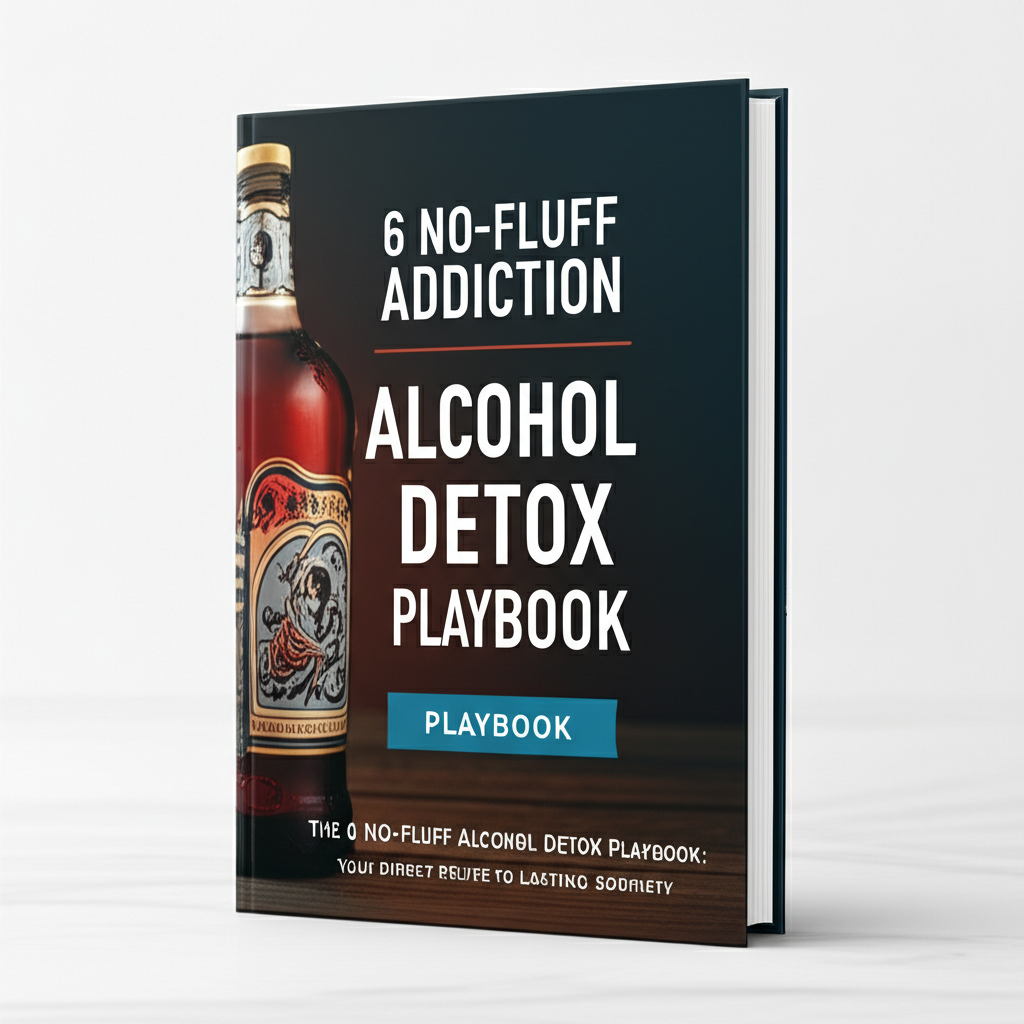The shadow of alcohol addiction casts a long, often isolating, pall over millions of lives. For those caught in its grip, the thought of breaking free, particularly the daunting process of detoxification, can feel overwhelming – a confusing maze of risks, discomfort, and uncertainty. Many attempt to go it alone, unaware of the severe dangers that lurk in unsupervised withdrawal.
But what if there was a clear, direct, and no-nonsense roadmap to safely navigate this critical first step? This is where the "6 No-Fluff Alcohol Detox Framework" steps in. Designed to cut through the noise and provide actionable, medically sound guidance, this framework empowers individuals and their loved ones with the knowledge needed to approach detox strategically, safely, and with the highest chance of success. It’s about practical steps, not platitudes, ensuring that the journey towards sobriety begins on the strongest possible foundation.
The Foundation: Why a Structured Detox is Non-Negotiable
Before diving into the framework, it’s crucial to understand why a structured, professional approach to alcohol detox isn’t just recommended, but often life-saving. Alcohol Withdrawal Syndrome (AWS) is a serious medical condition that occurs when a person dependent on alcohol abruptly stops or significantly reduces their intake. The brain, accustomed to the constant presence of a depressant, becomes overactive, leading to a cascade of potentially severe symptoms.
These symptoms can range from mild anxiety, tremors, and nausea to life-threatening complications like seizures and delirium tremens (DTs). DTs are a medical emergency characterized by profound confusion, hallucinations, rapid heartbeat, and high fever, carrying a mortality rate if left untreated. Attempting to detox at home without medical supervision is akin to navigating a stormy sea without a compass or life raft – incredibly risky and often fatal.
The 6 No-Fluff Framework acknowledges these inherent risks and prioritizes safety above all else, integrating professional care at every critical juncture.
Framework 1: Comprehensive Medical Assessment & Readiness
The very first step in any effective detox journey is to understand the terrain – both your physical and psychological state. This isn’t about guesswork; it’s about getting a clear, professional picture.
Understanding Your Starting Line
Before any detox begins, a thorough medical evaluation is paramount. This involves:
- Physical Examination: A doctor will assess your overall health, checking vital signs, organ function, and looking for any existing conditions that could complicate detox.
- Blood Tests: These can reveal the extent of alcohol-related damage (e.g., liver function, electrolyte imbalances, nutritional deficiencies) and identify any co-occurring medical issues.
- Severity Assessment: The doctor will evaluate the level of alcohol dependence, typically using standardized tools, to predict the severity of potential withdrawal symptoms. This helps determine the appropriate level of care (e.g., outpatient, inpatient, hospital).
- Medical History Review: Discussing past detox attempts, mental health history (anxiety, depression, psychosis often co-occur with addiction), and current medications is crucial.
Mental & Emotional Preparation
Detox isn’t just a physical process; it’s a profound mental and emotional challenge. Preparing for this aspect is key:
- Acknowledge and Accept: The individual must genuinely acknowledge their problem and express a desire to change. This intrinsic motivation is a powerful driver.
- Set Realistic Expectations: Understand that detox will be uncomfortable, but it is temporary, and medical support can alleviate much of the distress.
- Build a Preliminary Support Network: Identify trusted friends or family members who can offer emotional support (but not medical supervision) during this initial phase.
- Psychological Screening: A mental health professional can assess for underlying conditions that might complicate detox or recovery and begin to lay the groundwork for integrated treatment.
Framework 2: Medically Supervised Withdrawal Management
This is the cornerstone of safe and effective alcohol detox. Self-detoxification can be deadly; professional oversight is non-negotiable.
The Imperative of Professional Oversight
Medically supervised detox ensures:
- Constant Monitoring: Healthcare professionals continuously monitor vital signs (heart rate, blood pressure, temperature, respiration) and neurological status, allowing for immediate intervention if complications arise.
- Medication Administration: Specific medications are administered to manage withdrawal symptoms, prevent seizures, and stabilize the patient.
- Emergency Response: In the event of severe complications like seizures or DTs, medical staff are equipped to provide immediate, life-saving care.
Detox Settings: Depending on the severity of dependence and individual health, medical detox can occur in:
- Inpatient Facilities: Offering 24/7 medical care and a structured environment, ideal for severe dependence or those with co-occurring medical/mental health issues.
- Hospital Settings: For the most acute cases, especially those presenting with existing complications or a history of severe withdrawal.
- Outpatient Detox: For individuals with mild-to-moderate dependence, stable living situations, and robust support, involving regular visits to a clinic for medication and monitoring. This option requires strict adherence and careful screening.
Tailored Medication Protocols
The primary goal of medication during detox is to reduce the hyperexcitability of the nervous system and prevent severe symptoms.
- Benzodiazepines: Medications like Librium (chlordiazepoxide), Ativan (lorazepam), or Valium (diazepam) are the gold standard. They work by mimicking alcohol’s calming effect on the brain, preventing overstimulation and reducing anxiety, tremors, and seizure risk. The dosage is carefully tapered over several days.
- Other Medications: Depending on individual needs, other medications might be used to address specific symptoms:
- Anti-nausea drugs (e.g., ondansetron)
- Blood pressure medications
- Sleep aids (non-addictive)
- Anticonvulsants (if there’s a history of seizures)
These medications are not a "cure" for addiction but vital tools that make the detox process safer and more tolerable, creating a window for the body to stabilize.
Framework 3: Symptom Alleviation & Comfort
While medical intervention handles the critical safety aspects, ensuring comfort and alleviating distressing symptoms is vital for patient cooperation and well-being.
Beyond Medical Necessities
Detox is inherently uncomfortable. Creating an environment that supports physical and psychological ease, where possible, can significantly improve the experience. This includes:
- A Calm Environment: A quiet, dimly lit room can reduce sensory overload, which often exacerbates anxiety and agitation during withdrawal.
- Therapeutic Communication: Reassuring and empathetic communication from medical staff can significantly reduce fear and anxiety.
- Accessible Amenities: Ensuring easy access to restrooms, fresh water, and comfortable bedding.
Holistic Support Strategies
Alongside medication, simple yet effective strategies can aid in symptom management:
- Maintain a Calm Environment: Minimize noise, bright lights, and excessive stimulation.
- Ensure Constant Hydration: Alcohol is a diuretic and often leads to dehydration. Regular intake of water, electrolyte solutions, and clear broths is essential.
- Offer Gentle, Nourishing Foods: As nausea subsides, easily digestible, bland foods (e.g., toast, crackers, soup) can help stabilize blood sugar and provide initial nutrients. Avoid heavy, greasy, or spicy foods.
- Temperature Regulation: Patients may experience sweats or chills. Providing blankets or cool compresses can offer relief.
Framework 4: Nutritional Restoration & Physical Healing
Chronic alcohol abuse ravages the body, depleting essential nutrients and causing significant physical stress. Detox isn’t just about removing alcohol; it’s about beginning the process of physical repair.
Rebuilding from Within
Alcohol interferes with nutrient absorption and metabolism, leading to widespread deficiencies. A focus on nutrition during detox is crucial for:
- Replenishing Vitamins and Minerals: Key deficiencies often include B vitamins (especially Thiamine), magnesium, folate, and zinc. These are critical for brain function, energy production, and nerve health.
- Stabilizing Blood Sugar: Alcohol can cause blood sugar fluctuations. Regular, balanced meals help regulate this.
- Supporting Organ Function: A healthy diet supports the liver, kidneys, and other organs that have been stressed by alcohol.
The Role of Supplements
Specific supplementation is often necessary, particularly in the initial phases:
- Thiamine (Vitamin B1): This is perhaps the most critical supplement. Thiamine deficiency is common in alcoholics and can lead to severe neurological conditions like Wernicke-Korsakoff Syndrome, which can cause permanent brain damage, memory loss, and confusion. High-dose thiamine is often administered intravenously initially.
- Multivitamins: A broad-spectrum multivitamin can help address general deficiencies.
- Magnesium: Often depleted, magnesium plays a role in nerve and muscle function, and its replenishment can help reduce tremors and anxiety.
Think of your body as a garden that’s been neglected. Detox removes the weeds, but nutritional restoration is about replenishing the soil, ensuring the garden can flourish again.
Framework 5: Integrated Emotional & Psychological Support
While the initial focus of detox is physical safety, the underlying psychological drivers of addiction must be addressed concurrently. Detoxing without any emotional support is like fixing a broken leg but ignoring the chronic pain that led to the fall.
Addressing the Mental Landscape
The detox period is often accompanied by intense emotional turmoil. Anxiety, depression, guilt, shame, and fear are common. Integrated emotional support helps individuals:
- Process Intense Emotions: Therapists and counselors can provide a safe space to acknowledge and begin processing these overwhelming feelings.
- Reduce Psychological Distress: Simply having someone to talk to can alleviate feelings of isolation and hopelessness.
- Begin Identifying Triggers: While full therapy delves deeper, initial discussions can start to identify patterns and triggers associated with alcohol use.
Laying the Groundwork for Long-Term Sobriety
Emotional and psychological support during detox isn’t comprehensive therapy, but it lays a crucial foundation:
- Individual Counseling: Brief, supportive sessions can help patients navigate the immediate emotional challenges of withdrawal.
- Group Therapy: Even in early detox, sharing experiences with others who understand can reduce feelings of isolation and foster a sense of community.
- Peer Support Introduction: Many detox facilities introduce patients to the concepts of 12-step programs or other peer support groups like SMART Recovery, highlighting their role in long-term recovery.
Framework 6: Robust Aftercare & Relapse Prevention Planning
Detox is the critical first step, but it is NOT recovery. Without a comprehensive aftercare plan, the risk of relapse is incredibly high. This framework emphasizes building a sustainable bridge from detox to lasting sobriety.
The Bridge to Lasting Recovery
An effective aftercare plan is personalized and multifaceted, often including:
- Further Treatment Programs: This could involve inpatient rehabilitation (residential treatment for several weeks or months), intensive outpatient programs (IOP), or standard outpatient counseling. These programs delve deeper into the psychological aspects of addiction.
- Individual Therapy: Ongoing therapy (e.g., Cognitive Behavioral Therapy – CBT, Dialectical Behavior Therapy – DBT) helps individuals develop coping mechanisms, address underlying trauma, and change destructive thought patterns.
- Support Groups: Regular attendance at 12-step programs (Alcoholics Anonymous) or alternative groups (SMART Recovery) provides ongoing peer support, accountability, and a sense of belonging.
- Sober Living Environments: For some, transitioning to a sober living home after inpatient treatment provides a structured, drug-free environment to practice recovery skills before returning to independent living.
- Skill Building: Learning new coping strategies for stress, anger, boredom, and cravings is vital. This includes developing healthy hobbies, mindfulness practices, and communication skills.
Building a Resilient Future
Relapse prevention is an active, ongoing process that involves:
- Identifying High-Risk Situations and Triggers: Understanding what leads to cravings or a desire to drink (people, places, emotions).
- Developing a Relapse Prevention Plan: A written strategy outlining specific actions to take when faced with triggers or cravings, including contacting a sponsor, therapist, or support network.
- Building a Strong Support System: Surrounding oneself with sober, supportive individuals who understand the challenges of recovery.
- Continuous Self-Care: Prioritizing physical health (exercise, nutrition, sleep), mental health (mindfulness, stress management), and spiritual well-being.
Beyond the Framework: Embracing the Journey
The 6 No-Fluff Alcohol Detox Framework provides a clear, actionable pathway for the initial, crucial stage of overcoming alcohol addiction. It strips away complexity, focusing on safety, medical necessity, and foundational support.
However, it’s vital to remember that detox is merely the beginning. True recovery is a lifelong journey of self-discovery, growth, and continuous effort. It demands patience, self-compassion, and an unwavering commitment to a healthier future. By starting with this robust, no-fluff framework, individuals are not just detoxing; they are laying the groundwork for a life free from the shackles of addiction, one informed, empowered step at a time. If you or a loved one are struggling with alcohol dependence, reaching out to a medical professional or addiction specialist is the most courageous and critical first step.








